Hand Held GadgetA few decades ago mobile telephones were the stuff of science fiction, but there are now more subscriptions to mobile phone services than there are people in the World. |
|
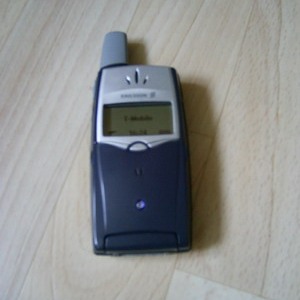
|
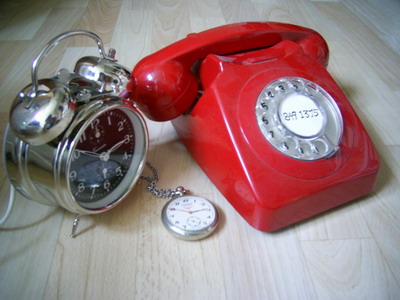 |
The mobile phone pictured left was used for 3 different functions; as a telephone, as a pocket watch and as an alarm clock. So effectively it replaced the items on the right.
Today this mobile is used as a torch, telephone, pocket watch (with its always-on-diplay), alarm clock, music player, sat' nav, camera, radio (mostly podcasts), notebook, address book, calendar and calculator. |
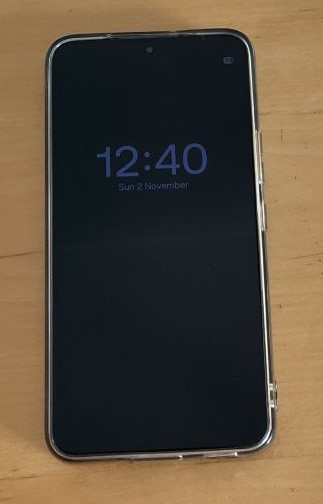 |
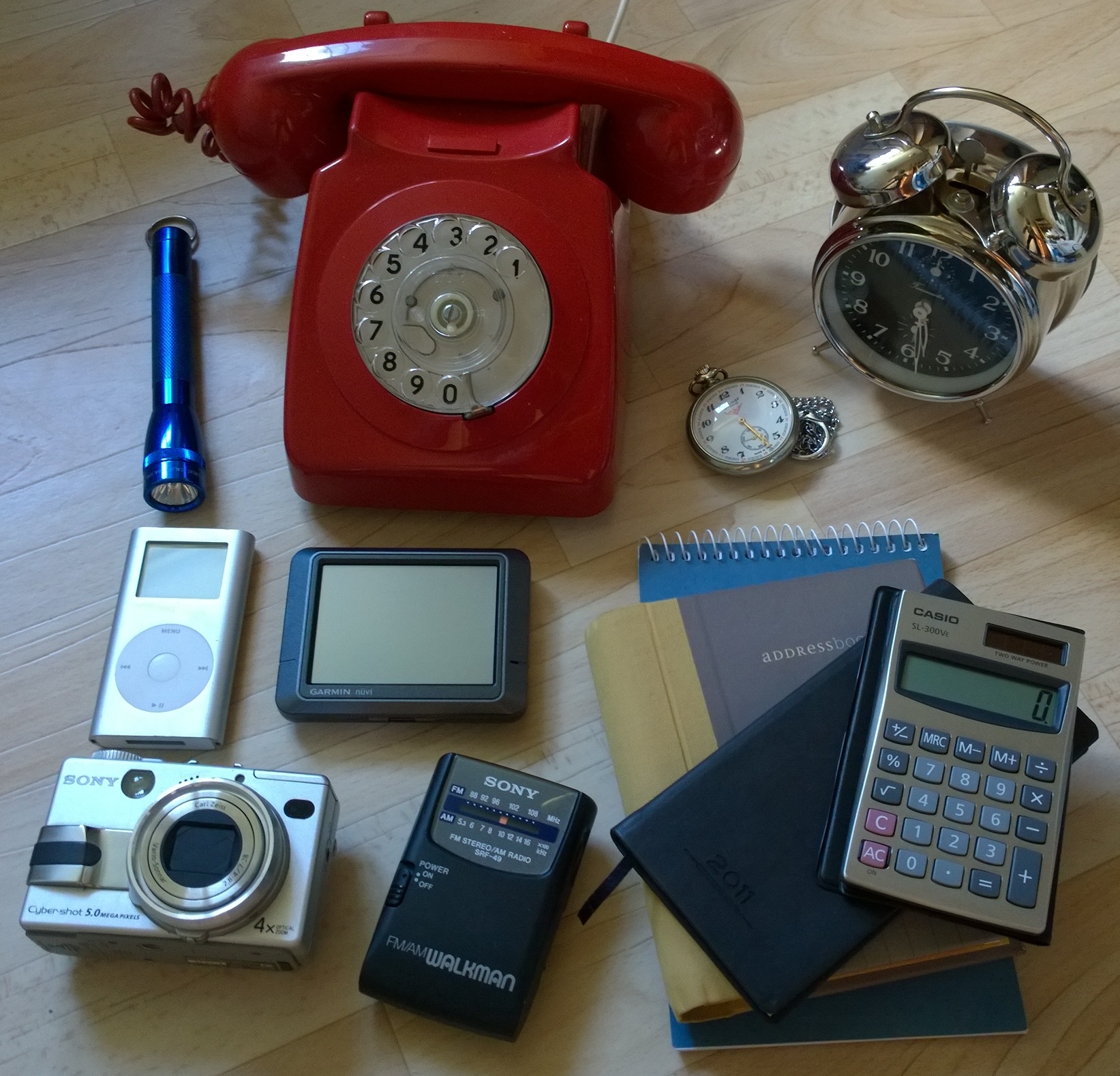 |
| The phone pictured left also has a feature called Samsung DeX which fulfills the vision of this video - a mobile computing device that can be used inplace of a desktop or laptop, and which could be seen as the future of personal computing. |
|
Add in some things that it could be used as and you have: a video camera, stills camera, torch, telephone, modem, alarm clock, star chart, compass (will only work if the device has a magnetometer), music player, sat' nav', pocket watch, dice, pocket games console, sound level meter, dictaphone, radio, stop watch, notebook, address book, calendar and calculator. |
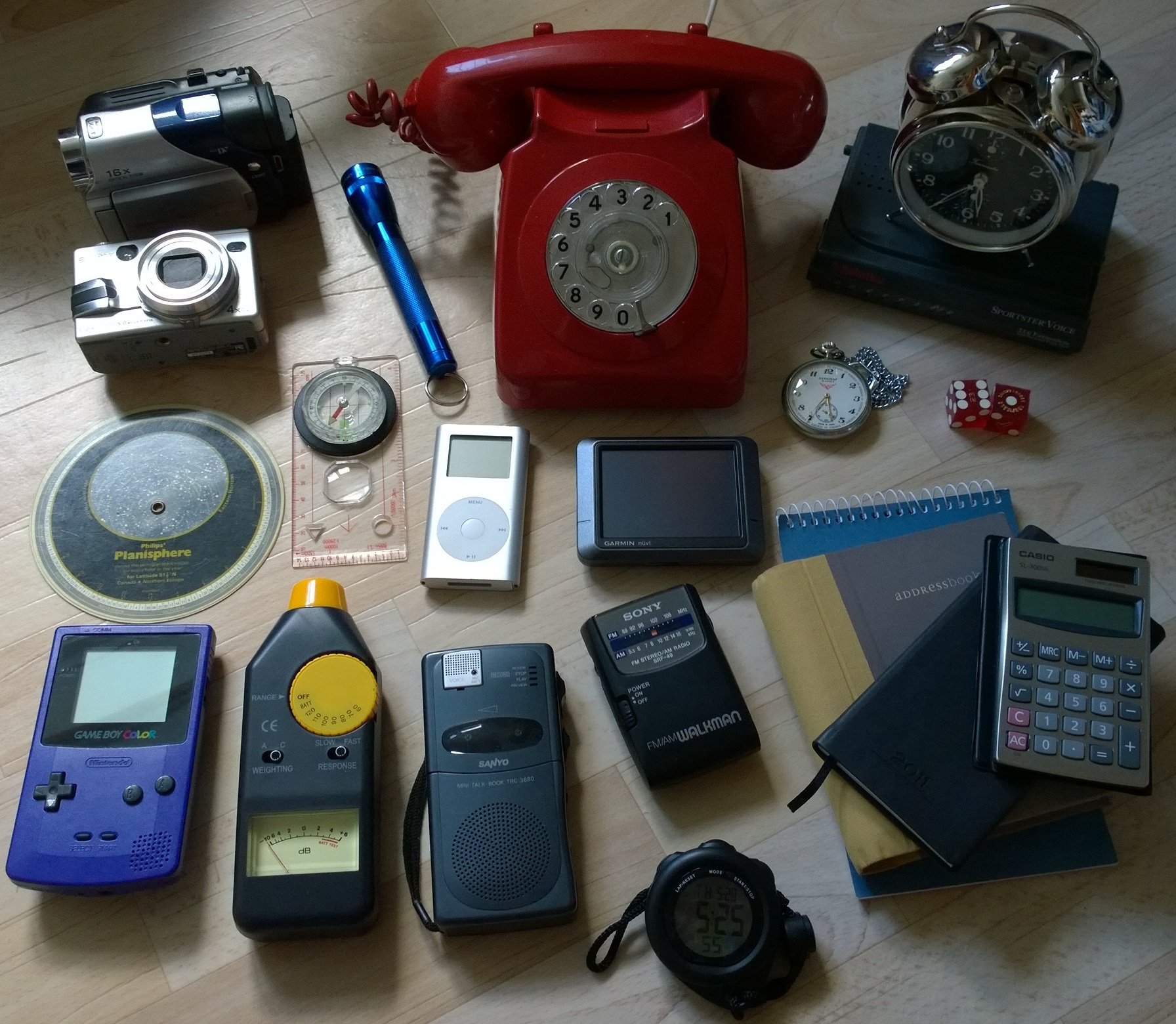 |
|
| A mobile is obviously very useful. It has many functions, those functions are available whenever its to hand (for some functions a 'signal' is needed too) and the burdens are fairly low - the purchase cost, keeping it charged and the cost of the monthly bill. |
|
Some things traditionally delived by post are becomming less common as they are replaced by email, apps, and websites:
- Bank and credit card statements.
- Utility bills.
- Travel documents.
- Insurance documents.
- Payslips.
- Personal letters.
- Postcards.
As the volume of letters declines, and the cost of postage increases, this trend is speeding up.
Although not always deliverd by post, paper tickets (for trains, flights, concerts, and events) are likewise being replaced.
Also, cash, debit and credit cards - using a payment app.
House keys? - using 'smart locks' and an app. Would you trust it? |
|
What is a tablet good for? |
Replacing some things traditionally printed on paper. |
|
Smartphones and tablets have made local business directories obsolete.
No longer are thick paper copies of Yellow Pages, Thomson Local, and others, delivered to households every year. |
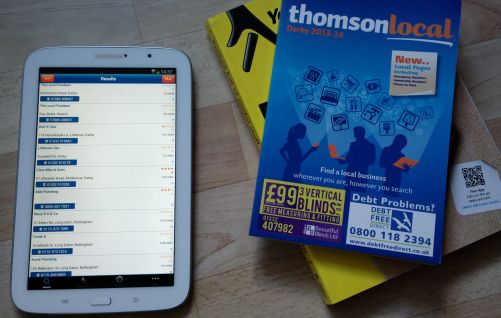 |
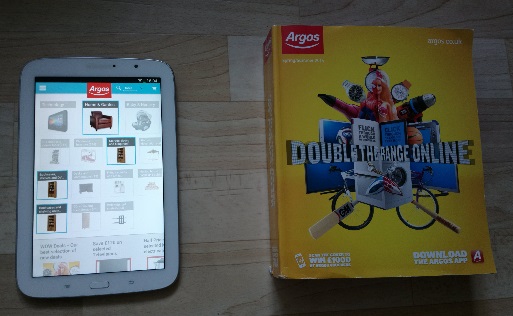 |
The same can be said of shopping catalogues.
They have been replaced by websites and apps. |
A tablet can, to some degree, replace a newspaper.
Newspapers on tablets tend to be app's that either download the articles as you want them, or editions that are downloaded for you to read them at a later time. So, the first kind needs an internet connection whilst you read it, the second needs an internet connection once a day. |
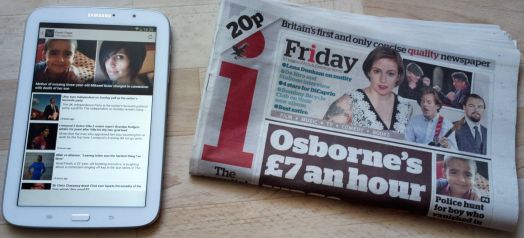 |
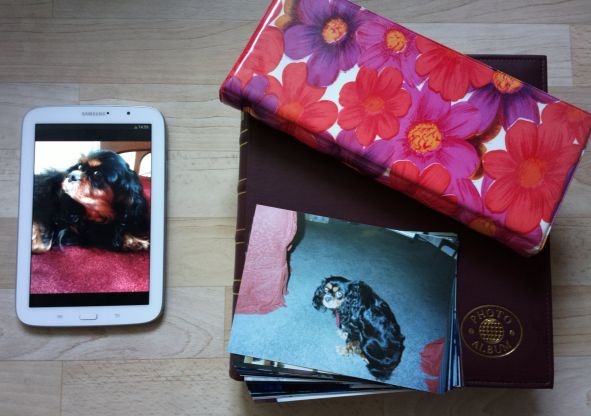 |
Viewing photos on the screen of a tablet is a lot better than on the smaller screen of a digital camera or mobile phone. The screen of a tablet is a similar size to a paper photograph from recent decades and shows a similar amount of detail. It also takes up a lot less space than a few years worth of photo albums. |
| The Freeview website or app makes a good TV guide. Also, some tablets have an infra-red transmitter which together with an app can replace the remote control. |
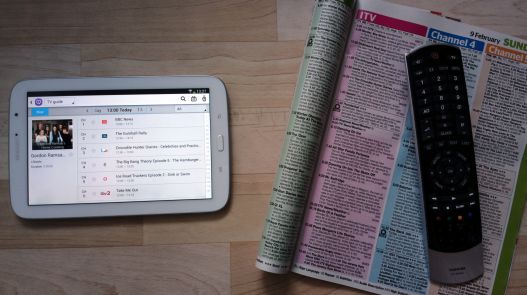 |
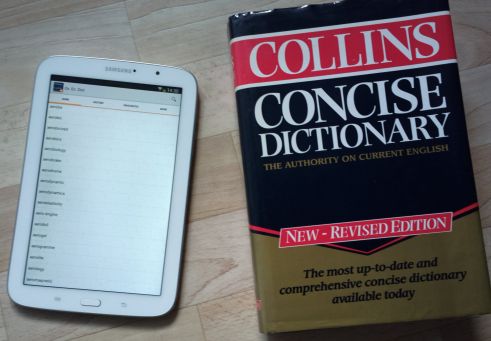 |
A tablet makes a good dictionary. Searching for a word can be quicker and some app's can play audio of how the word sounds when spoken. Some dictionary apps only work with an internet connection. |
Tablets and portable DVD players have similar sized screens and will both play videos. With one you have to carry around the DVDs that you might want to watch, with the other you have to 'rip' those DVDs to the tablet or a memory card. 64GB will hold about 10 DVDs in the original format, or as many as 90 if you don't mind losing some quality/resolution.
Watching films 'on demand' requires a connection to the internet. Downloading films from the Play store/iTunes/xbox video is no less expensive than buying a DVD or BluRay. When you've downloaded a film to one device it might be tricky to move it to another. And once you've done with it you can't give it to a friend or charity shop and so you can't buy them second hand. |
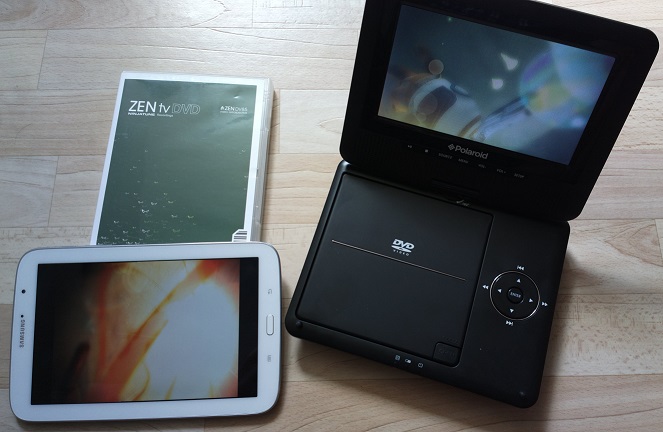 |
Documents, such as insurance, bank statements, equipment manuals.
Calendar - like the one you hang on the wall, except you can't hang it on the wall but it does update/sync with the one on your smartphone.
So, put together all the things a phone and tablet can replace and you have the assortment pictured:
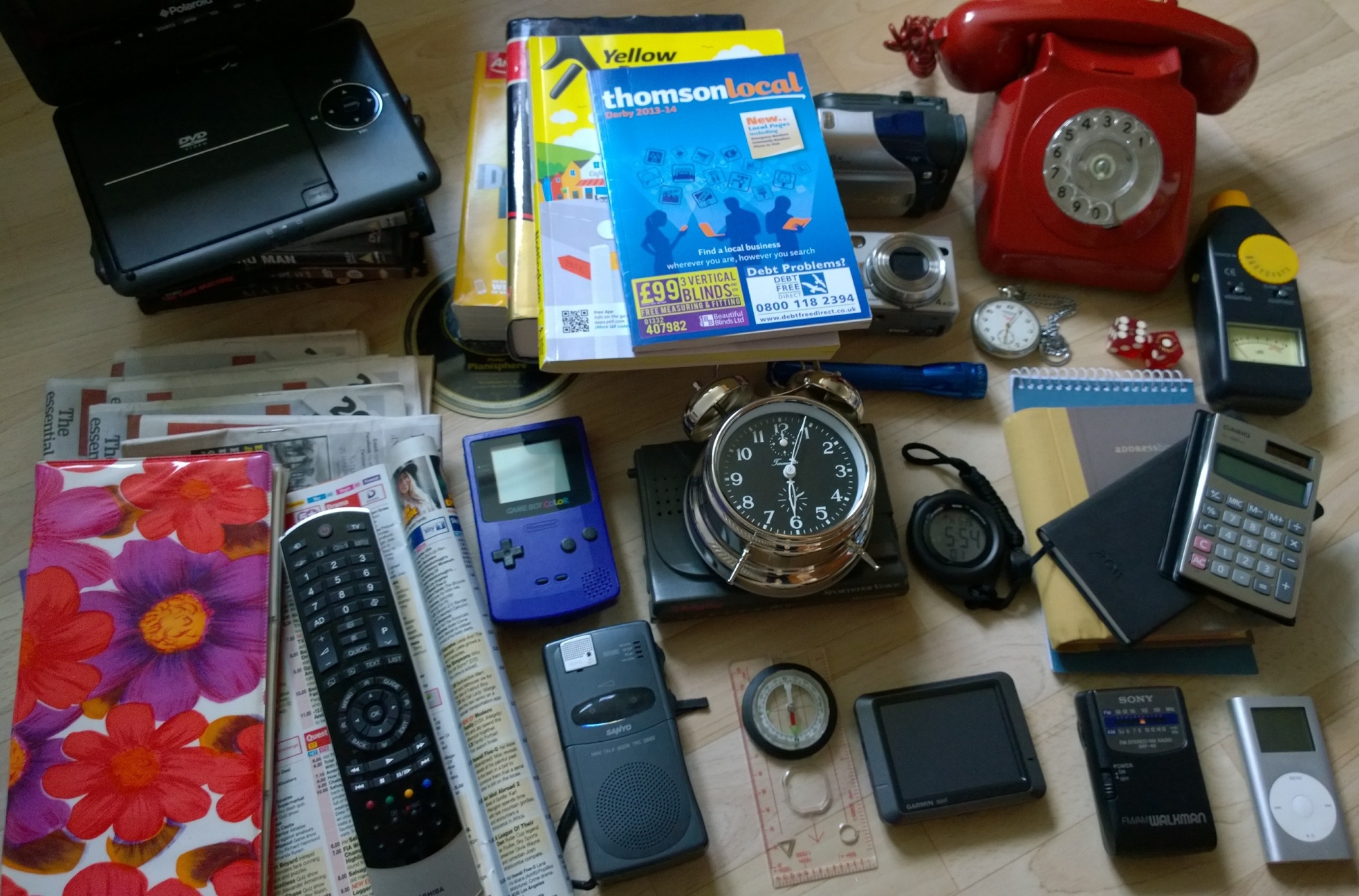
A portable DVD player and some DVDs, a star chart, shopping catalogue (Argos), dictionary, local business directories (Yellow Pages and Thomson Local), video camera, stills camera, telephone, pocket watch, dice, sound level meter, a weeks worth of newspapers, photo album, TV guide and remote control, portable games console, modem, alarm clock, torch, stop watch, notebook, address book, diary, calculator, dictaphone, compass, sat' nav' radio, and music player.
Usefulness = (Functionality x Availability) - burden












